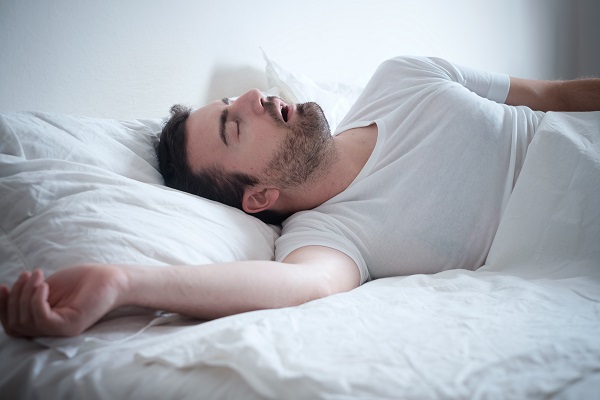An Overview of Sleep Medicine Treatment From a Dentist

Dental sleep medicine is an important area of dental practice that focuses on the treatment of sleep-disordered breathing like obstructive sleep apnea (OSA) and snoring. Sleep apnea is a serious sleep disorder that happens when regular breathing is interrupted while a person is sleeping. OSA is a common type of sleep apnea that occurs when a person’s throat muscles relax. If you think you might have sleep apnea, you should consult your dentist.
Sleep medicine treatment
Many dentists are trained to help treat and manage or control snoring and sleep apnea. Dentists usually work closely with sleep physicians to identify the ideal treatment for every patient. This ensures that each patient receives quality care. Dentists can help patients control OSA and snoring through the use of oral appliance therapy.
Oral appliance therapy
Oral appliance therapy is a suitable treatment option for snoring and obstructive sleep apnea. A custom-fit oral sleep appliance can be used to improve sleep, revitalize a person’s health and restore alertness. An oral appliance should only be worn during sleep and it often fits like an orthodontic retainer or a sports mouthguard. It helps support a person’s jaw in a forward position, which helps in maintaining an open upper airway. Oral appliance therapy fits easily into a person’s lifestyle. Many patients prefer it because it is easy to wear, comfortable, easy to care for, quiet, portable and convenient for travel.
Qualified dentist
If a doctor and patient decide that oral appliance therapy can help, the doctor will write a prescription for the patient to receive a custom-made oral appliance. A patient will most likely also receive a referral to a qualified dentist who may provide oral appliance therapy. Numerous oral appliances have received FDA clearance. The dentist will recommend an oral appliance that is ideal for the patient.
Most times, at the first visit, the dentist will let the patient know about the benefits of treatment. The patient will also be made aware of the potential side effects and the cost of therapy. A complete clinical evaluation will then be conducted by the dentist. This will include an examination of the jaw, tongue, teeth and airway and possibly an X-ray of the mouth.
Follow-up visits
Follow-up visits with the dentist will help ensure the optimal fit of a person’s oral appliance. Effective oral appliances are often custom-fit and they have to be adjusted over time. This helps ensure maximum effectiveness. A dentist may also decide to schedule an annual assessment. These routine visits are immensely important and an integral part of the long-term success of the treatment.
Takeaway
Seeking treatment for obstructive sleep apnea early is highly recommended. Untreated sleep apnea can lead to many serious problems. Oral appliance therapy is considered an effective treatment option for obstructive sleep apnea as well as snoring. An oral appliance can be used to maintain an unobstructed, open airway. Oral appliances should only be provided by a qualified dentist who has the required skill and knowledge in dental sleep medicine. This will significantly increase the chances of treatment success.
Request an appointment here: https://artisandentalbellevue.com or call Artisan Dental at (425) 454-2005 for an appointment in our Bellevue office.
Check out what others are saying about our services on Google: Read our Google reviews.
Related Posts
Getting a smile makeover means getting at least one type of cosmetic dental treatment. You may want to improve your smile, but along with these treatments is the benefit of better oral health. Finding out more about this makeover can help you make informed decisions. Here are the details to consider about a smile makeover.The…
A smile makeover can be achieved with the help of one procedure or several. What a dentist recommends depends on the attributes of your smile you would like to change. To give you a better picture of some treatments that can transform a smile, take a look at these five popular treatments.Slight to moderate misalignments…
Considering a smile makeover and not sure where to start? Read on to learn more. Many people avoid smiling due to dental imperfections. A smile makeover may be the answer. A dentist can improve your smile with cosmetic procedures like teeth whitening, bonding, and veneers. The right professional for the treatment is the key to…
A smile makeover treatment can target dental stains and discoloration. Some of them affect the surface, while others penetrate the deeper layers of the mouth. A full evaluation can determine the right procedure to correct this cosmetic dental issue. Here are the common smile makeover options you should consider for your discolored or stained teeth.Despite…









